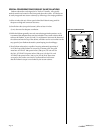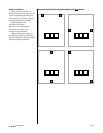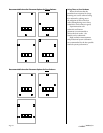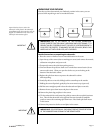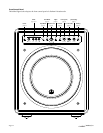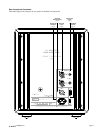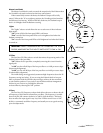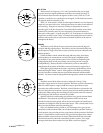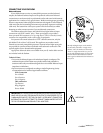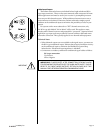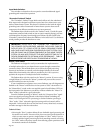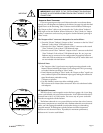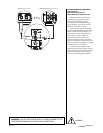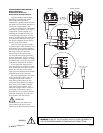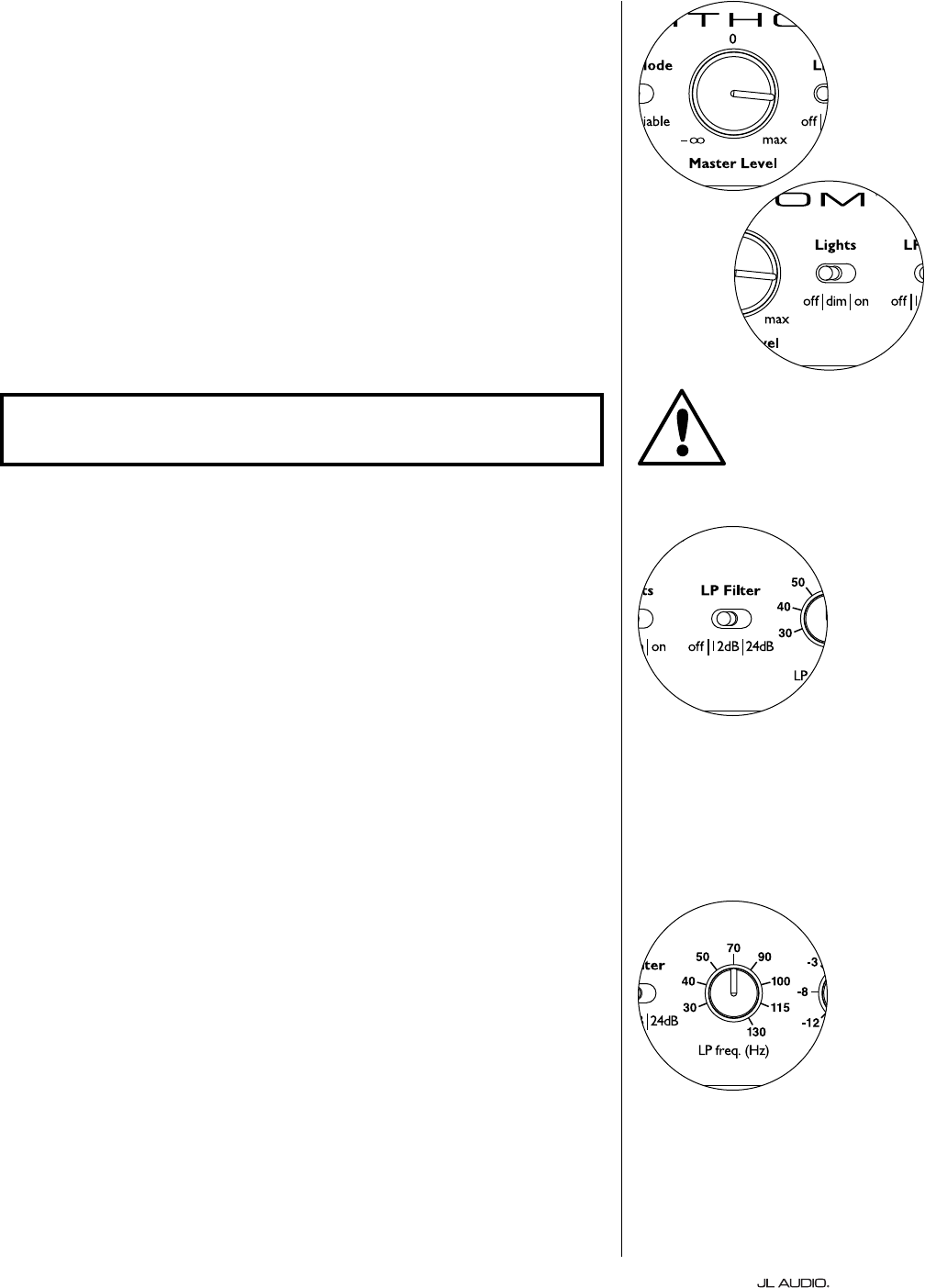
| Fathom f110Page 16
Master Level Knob
e Master Level Knob is used to control the output level of the Fathom when
the Variable Level mode is selected on the front control panel.
When rotated fully counter clockwise, the Fathom’s output will be fully
muted. When at the “0” or straight up position, the Variable gain level matches
the Reference level setting. When turned fully clockwise, the Fathom’s output
level is 15 dB higher than the Reference setting.
Lights
e “Lights” selector switch allows the user to select one of three indicator
light modes.
“O ” turns o all of the front panel LED’s at all times.
“Dim” sets all of the front panel LEDs to a low brightness level when the
Fathom is turned on.
“On” sets all of the front panel LEDs to full brightness level when the Fathom
is turned on.
LP Filter
e Low Pass (LP) Filter selector switch determines the operating mode of the
Fathom’s built-in low pass lter.
“O ” defeats the low pass lter, completely removing this circuit from the
signal path.
“12 dB” sets the roll o slope of the low pass lter to a 12 dB per octave slope
(Butterworth alignment).
“24 dB” sets the roll o slope of the low pass lter to a 24 dB per octave slope
(Linkwitz-Riley alignment).
e 24 dB setting more aggressively attenuates high frequencies above the LP
Frequency setting (see below). If you are using the Fathom’s built-in low pass
lter, experiment with the LP Filter slope setting to achieve the best transition
to your satellite speakers. If you prefer to use the lters and bass management
features in your receiver or preampli er, defeat the
on-board lter by selecting the “O ” position.
LP Freq
e Low Pass (LP) Frequency selector knob allows the user to choose the roll-
o frequency of the Fathom’s internal low pass lter. e frequency is variable
between 30 Hz (full counter-clockwise) to 130 Hz (full clockwise). is knob
does not a ect the input signal in any way if the LP Filter switch is set to “O ”.
80 Hz is a commonly used lter frequency and usually serves as a good starting
point for adjustments.
IMPORTANT
IMPORTANT: WHEN TROUBLESHOOTING OR CALIBRATING THE A.R.O.
FEATURE, MAKE SURE THAT THE “LIGHTS” SWITCH IS SET TO “DIM” or “ON.”



